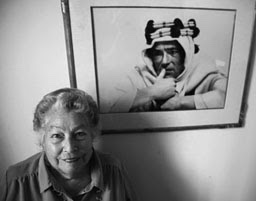The Board of Governors from AMPAS have finally announced their selections for this year's Honorary Oscars. This year they're not giving out the Thalberg (for Producing) or the Hersholt (for Huminatarian efforts) but just the regular ol' Honorary Oscars. If such a thing can be deemed "regular" since they're so hard to come by. Consider that James Ivory still doesn't have one despite being a masterful oft imitated but never duplicated director behind three major Best Picture contenders (and many other beautiful films) and never having won an an Oscar and being 88 years old. Nathaniel wept. Oscar remains remarkably stingy with the gays but at least they've noticed the need for diversity in other ways.
Congratulations to this year's esteemed recipients!
 Jackie Chan's starmaking hit The Legend of Drunken Master (1978)
Jackie Chan's starmaking hit The Legend of Drunken Master (1978)
SUPERSTAR JACKIE CHAN
He's a famous actor, producer, and director and his filmography is just enormous with well over 100 films under his belt. What's more he's a major figure in Asian cinema which is about the last place Oscar ever looks to hand honors so good on them. He's only 62 which is young for an Honorary prize but Spike Lee got his while still in his late 50s recently so they appear to be loosening up with their age restrictions.
 EDITOR ANNE V COATES
EDITOR ANNE V COATES
Though The Film Experience is against Oscar's strange practice of giving Honorary Statues to people who've already won (like Coates) there's no denying that she's one of the best editors the cinema has ever seen. And in truth they've been a bit stingy with her with only 5 nominations and a win (Out of Sight, In the Line of Fire, The Elephant Man, Becket, and her winning film Lawrence of Arabia when she was still in her 30s). I was personally horrified when she was not nominated for her vigorous artful editing on Erin Brockovich (2000). At 91 she doesn't work much anymore but she did edit Fifty Shades of Grey (2015) recently.
DOCUMENTARIAN FREDERICK WISEMAN
The Academy has been egregiously stingy with this 86 year old. He's never been nominated despite being considered one of the all time greatest documentarians. He has made nearly 40 documentaries including such well regarded titles as Titicut Follies (1967), High School (1968), Hospital (1970), Welfare (1975), Domestic Violence (2001), and At Berkeley (2013)
 Lynn Stalmaster at the TCM FestivalCASTING DIRECTOR LYNN STALMASTER
Lynn Stalmaster at the TCM FestivalCASTING DIRECTOR LYNN STALMASTER
Since AMPAS does not have a category for casting this is a great use of the Honorary award. Lynn Stalmaster is 88 years old and a legend in his field. Within his first three years as a casting director he already had a Best Actress winning film under his belt (I Want to Live!, 1958). Among his many films there are quite a few examples of situations where the perfect actors for that particular project where chosen including: In the Heat of the Night (1967), The Thomas Crown Affair (1968), They Shoot Horses Don't They (1969), Harold and Maude (1971), Deliverance (1972), Tootsie (1982), The Right Stuff (1983), Nine and a Half Weeks (1986) and many more. I adore that he had such a thing for Faye Dunaway though maybe she regrets how frequently he cast her since Mommie Dearest (1981) and Supergirl (1984) were towards the end of it.
The non-televised Governors Awards will be held on November 12th. As usual we'll be doing some posting on these four careers in the lead up to their honors so we have quite a range of films to choose from. Any requests?
 Friday, September 2, 2016 at 2:24PM
Friday, September 2, 2016 at 2:24PM 








